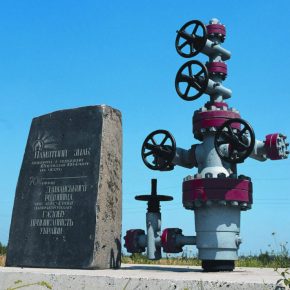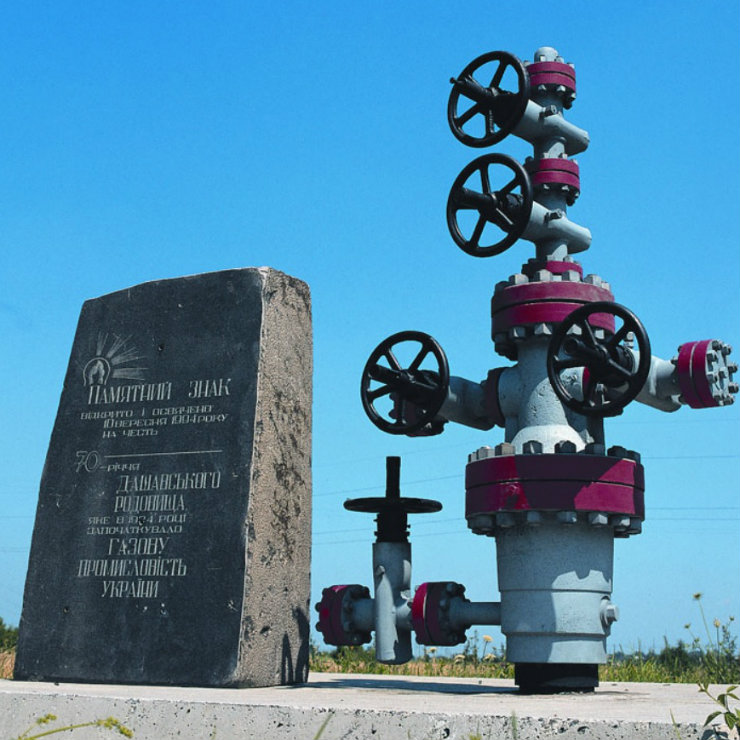Tydzień w gospodarce
Category: Trendy gospodarcze
Analyst, journalist specializing in the Western Balkans and Middle East domestic and foreign affairs

(Naftogaz Ukrayiny, Public domain)
Ukraine began to reform its gas sector, but also seeks to resolve the problems in the east of the country and tries to prevent the construction of Nord Stream 2 in the Baltic, which would bypass Ukraine and significantly reduce Ukraine’s profits from gas transit from Russia to Europe. Reforms have slowed down due to the lack of political will among the Ukrainian authorities. Slow reforms and quarrels within the government, as well as among the management of state energy company Naftogaz, have a negative impact on the already tarnished image of Ukraine in the world. These factors can lead to a situation in which transporting gas through Ukraine will no longer be considered a good alternative to a new gas pipelines of Gazprom. Diplomatic activities around Ukraine might stop overnight after the release of the Nord Stream 2 (read more about the future of Nord Stream 2). This could lead to significant geopolitical tension, especially after the Danes showed that they can stop the passage of the pipeline through Danish territorial waters, which is part of the idea of connecting Norway and Poland, and reducing the dependence of Middle Eastern Europe on Russian gas.
The reform of the Ukrainian state monopoly Naftogaz is one of the most difficult and most important challenge for the Ukrainian authorities. The reform is needed mainly because of the serious economic problems Ukraine faces. Naftogaz’s deficit was covered by the state budget in 2014 and amounted to more than 6 per cent of the country’s GDP. Together with the ongoing crisis the Ukrainian macroeconomic stability was basically grounded. In the period between 2014 and 2015, Kiev had to seek financial assistance from the International Monetary Fund twice . Restructuring Naftogaz then became one of the main demands of the IMF (read more).
Naftogaz is the largest Ukrainian corporation in the energy sector, and with its subcontractors (including gas extraction, storage and transportation companies) is also the largest taxpayer in the country. According to the restructuring plan adopted by the government in July 2016 and based on the third energy package agreed with the European Union, Naftogaz would have to break down into several corporate units to stop the monopoly. According to the agreement, Naftogaz will spin-off gas pipelines and underground warehouses to a new company that will be governed by the Ministry of Energy and the Coal Industry. This move aims to create a transparent and competitive gas market and could therefore become attractive to foreign investment. Among those interested in maintaining gas transit over the Ukrainian territory are operators from Italy and Slovakia, who can help in the future modernization of the Ukrainian gas network.
An important component of Naftogaz’s reform is the liberalization of gas prices for households. The maintenance of state prices below market value led to a gradual increase in company debts, and the government covered these losses. Regular monitoring of the prices was another IMF’s requirement. Between 2014 and 2017, the government has increased prices for individual consumers nearly ten times, but the price is still lower than the market one, favouring inefficient gas consumption and corruption, as gas sales are performed through intermediaries that do not provide accurate gas consumption data. It is estimated that the system generates losses of about EUR1.3bn a year.
Recently, Naftogaz has recovered somewhat, so in 2017 it paid almost EUR3bn in taxes and dividends, accounting for almost 14 per cent of state budget revenues, but this has boosted the internal political struggle for corporate control and its financial gains. In 2016, the Ministry of Economic Development and Trade tried to take control of Ukrtranshaz, one of the most profitable sub-units of Naftogaz, which manages transport and storage of gas. This move was contrary to Naftogaz’s restructuring plan as agreed with the Energy Community and the European Bank for Reconstruction and Development, i.e. with the Bank’s Financial Aid Agreement. In the end, the ministry dropped its claim because international financial institutions threatened to stop financial aid.
Restructuring has led to clashes between the government and the Naftogaz management because they are accusing each other of attempts to sabotage proceedings and business. The government decided to slow down with the establishment of new gas transmission companies, and Naftogaz has created a new branch within Ukrtranshaza. The management even went further in trying to work independently and hired a financial advisory firm that is part of Rothschild & Co. in order to help with the restructuring and finding foreign investors. In response, the government blocked Naftogaz in direct negotiations with investors. The creation of new companies has also slowed down due to the process before the Stockholm Arbitration Tribunal where Naftogaz and Gazprom contend. The Tribunal ruled in favor of Naftogaz and decided that Gazprom will have to make a net payment of USD2.56bn to Naftogaz. Gazprom filed an appeal saying that there were „significant procedural irregularities committed by arbitrators during adoption of this decision”.
Now nothing prevents the emergence of new companies – except the government. There is no political will to complete the restructuring, as these firms will play a significant role in the presidential and parliamentary elections in 2019. It is unclear whether Kiev will allow another increase in household prices, precisely because the government is afraid of losing votes. But, on the other hand, the continuation of Naftogaz’s restructuring is extremely important for getting support from international financial institutions. Despite the positive decision of the Arbitral Tribunal for Ukraine and the possibility of additional financing on the capital market arises, the government could keep control and discourage investment in the Ukrainian gas pipeline system.

